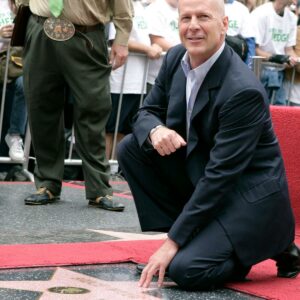When we speak of cultural icons, Aretha Franklin’s name often comes to mind as a figure who not only shaped the music industry but also influenced the social and political fabric of America. Known as the “Queen of Soul,” Franklin’s impact went beyond her powerful voice and unmistakable sound. She harnessed the depth of her gospel roots, intertwined them with the fervor of R&B and soul, and created music that resonated profoundly with listeners around the world. Aretha was more than just a singer; she was a voice for change, a beacon for empowerment, and a symbol of resilience. Her music, deeply rooted in the African American experience, spoke to universal themes of respect, equality, and justice, making her an indelible figure in both the music industry and the social justice movements of her time.
The Unique Power of Aretha Franklin’s Music
Born in 1942 in Memphis, Tennessee, and raised in Detroit, Michigan, Aretha Franklin’s journey to music royalty was fueled by her early years singing in her father’s church. Her father, Reverend C.L. Franklin, was a prominent minister and civil rights advocate, which exposed Aretha to both the power of gospel music and the importance of social change from a young age. Gospel gave her an emotional depth, a raw, unfiltered power that would become her trademark. But Aretha wasn’t content with staying in one genre. She bridged gospel with rhythm and blues, jazz, and later, pop, creating a sound that was uniquely her own.
Franklin’s songs carried an emotional resonance that transcended genre. Her voice could be powerful and commanding in one moment, then tender and soothing in the next. She infused her music with emotion, reflecting her personal struggles and triumphs. Her hit songs like “Respect,” “Natural Woman,” and “Chain of Fools” weren’t just chart-toppers; they were declarations of dignity, resilience, and self-worth. In a world where African Americans and women were often marginalized, Franklin’s music spoke directly to the soul, conveying messages of empowerment and change.
The Message of Change in Aretha’s Music
Aretha Franklin’s music became anthems for the Civil Rights Movement and, later, the feminist movement. “Respect,” originally written by Otis Redding, was transformed by Franklin into a statement of strength and self-worth. When Franklin sang, “All I’m askin’ is for a little respect when you come home,” her voice demanded recognition, not only for herself but for women and African Americans everywhere. Released in 1967, during a time of intense social and political upheaval, “Respect” became a rallying cry for those fighting for equality. It was a demand for dignity, not only in the context of relationships but as a broader social statement.
Songs like “Think” and “(You Make Me Feel Like) A Natural Woman” also became emblematic of the struggle for equality and personal empowerment. Franklin’s music emphasized self-respect and autonomy, speaking to the heart of the feminist movement that was gaining momentum at the time. “Think” was more than just a catchy tune; it was a call for personal freedom, a reflection of the desire for self-empowerment, particularly for women. The refrain “You better think about what you’re trying to do to me” highlighted the importance of recognizing one’s own value and not settling for less than one deserves.
Aretha Franklin and Her Role in the Civil Rights Movement
Franklin’s activism wasn’t just confined to the messages in her music; she was deeply involved in the Civil Rights Movement, actively supporting and funding social causes. She was close friends with Dr. Martin Luther King Jr., who was a regular guest at her father’s home and whom she admired greatly. Her connection to King extended beyond mere admiration—she performed at his rallies and supported his cause wholeheartedly. Franklin used her influence and platform to lend support to the movement, performing benefit concerts, attending rallies, and donating proceeds to civil rights organizations.
In 1968, following Dr. King’s assassination, Franklin sang at his funeral, delivering a moving rendition of “Precious Lord, Take My Hand.” This wasn’t just a performance; it was a moment that underscored her commitment to the movement and her grief over losing a close family friend and a leader of her people. Aretha’s involvement in the Civil Rights Movement went beyond music—she actively contributed to the cause, understanding the responsibility that came with her platform and the influence she held.
Her activism extended beyond just racial equality. Franklin often performed at events supporting social causes, including fundraisers for Black Panthers and initiatives aiding the underprivileged. Her activism was multifaceted, addressing racial justice, poverty, and other pressing social issues of the time. She believed in using her influence to give back to the community, setting an example for artists and performers in using their voices for more than just entertainment.
Aretha Franklin as a Voice for Feminist Empowerment
The feminist movement found an unexpected but fierce ally in Aretha Franklin. In the late 1960s and early 1970s, women were fighting for greater rights, from workplace equality to reproductive freedom, and Franklin’s music resonated with women of all backgrounds. Her songs didn’t just empower women; they celebrated them. In a male-dominated industry, Franklin held her own, demanding equal treatment and respect, which was a statement in itself. Her music became a source of strength for women who were often told to stay silent or endure injustice. Through her lyrics and vocal delivery, Aretha celebrated womanhood and encouraged women to embrace their strength and independence.
Her influence on female artists was profound. Musicians like Whitney Houston, Beyoncé, and Alicia Keys have all cited Franklin as a major influence, not just in their music but in the way they viewed their roles as women in the industry. Franklin set a standard of excellence and strength, showing future generations that it was possible to be both powerful and vulnerable, both strong and compassionate. Her music wasn’t just entertainment; it was a guide for women navigating the challenges of a society that often didn’t value their contributions or respect their autonomy.
Aretha’s portrayal of women in her music broke the stereotypes of the time. She wasn’t portraying women as weak or secondary; she was showing them as independent, strong, and deserving of respect. Her music mirrored the feminist ideals of self-worth, resilience, and autonomy, and in doing so, she empowered countless women who saw her as a role model.
Aretha Franklin’s Legacy: Music as a Tool for Social Change
Even after her passing in 2018, Aretha Franklin’s legacy continues to influence music, social justice, and the way we understand the relationship between art and activism. She showed the world that music could be more than just a form of entertainment; it could be a tool for social change, a voice for the voiceless, and a means of challenging the status quo. Franklin’s music continues to inspire artists to use their platforms for activism, a tradition carried on by modern musicians who address social issues through their work.
Franklin’s influence extends beyond her own discography. The themes of empowerment, equality, and respect that she championed have been echoed in countless songs by artists who see her as a guiding light. Musicians like Lauryn Hill, Mary J. Blige, and even younger artists like H.E.R. and Janelle Monáe continue to explore the themes that Franklin introduced, emphasizing self-worth, resilience, and the struggle for justice in their own music. Aretha’s legacy is also present in the ongoing dialogue about the role of artists in addressing social issues. She set a precedent for using art as a form of resistance, showing that artists have the power—and, some would argue, the responsibility—to speak out against injustice.
Conclusion: Aretha Franklin, a Symbol of Music and Social Change
Aretha Franklin wasn’t just the “Queen of Soul”; she was a revolutionary force, using her voice and influence to challenge societal norms, demand respect, and advocate for social change. Her music transcended the boundaries of genre, race, and gender, touching on universal themes that continue to resonate with audiences around the world. Franklin’s commitment to activism and her fearless pursuit of equality made her a pivotal figure in both the Civil Rights and feminist movements.
Her legacy is a testament to the power of music as a force for good, as a platform for advocacy, and as a tool for empowering those who feel voiceless. Aretha Franklin showed the world that music could inspire, heal, and unite. She may be gone, but her voice—the voice that demanded respect, equality, and dignity—will forever echo through the generations. The Queen of Soul’s music remains a powerful reminder of the resilience of the human spirit and the transformative power of a single voice raised in song.





